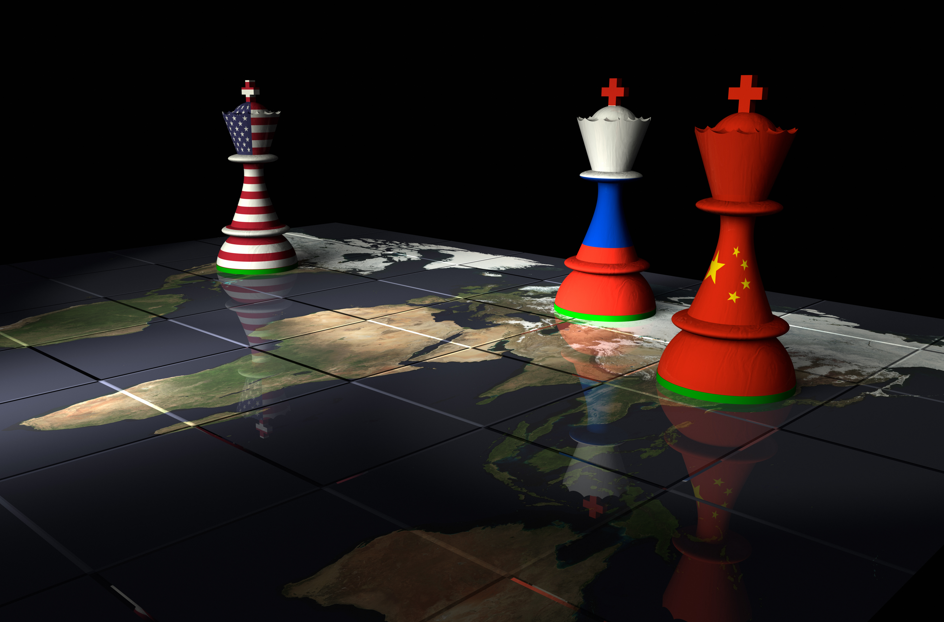Ted Galen Carpenter, Senior Fellow, Randolph Bourne Institute
Mar 06, 2023
The tattered U.S.-Russia relationship serves as one example of how far a “Cold War” can go when America escalates the situation. And by repeating these same steps with China today, the U.S. might be pushing two of its rivals together - the exact situation that Washington wants to avoid.
Brian Wong, Assistant Professor in Philosophy and Fellow at Centre on Contemporary China and the World, HKU and Rhodes Scholar
Mar 01, 2023
The heightened tensions between the U.S. and China are here to stay until both sides can reach common ground - which may have to begin in literal form in locations that both sides can send representatives to dialogue over critical issues.
Wang Zhen, Professor and Deputy Director, Institute for International Relation Studies, Shanghai Academy of Social Sciences
Mar 01, 2023
Western advocates of a renewed standoff between great powers are blinded by their biases, as China’s rise goes beyond Western experience. At a time of deep economic interdependence and with weapons unimaginable in the past, who can guarantee that a confrontation would not escalate out of control?
Li Yan, Director of President's Office, China Institutes of Contemporary International Relations
Feb 28, 2023
Historically, the United States has made many strategic blunders based on misguided thinking — and people have paid a heavy price. If America’s current misjudgments about itself are coupled with competitive hostility toward China, it may sink into a new quagmire.
Philip Cunningham, Independent Scholar
Feb 28, 2023
A recent substack post from American muckraker Seymour Hersh blames the sabotage of the Nord Stream pipeline on the Biden White House and CIA. And Chinese and Russian media can’t get enough. Alternatively, U.S. media has been hyper fixated on the Chinese spy balloon incident for weeks. Are both sides playing down truths to keep diplomacy alive? Only time will tell.
Doug Bandow, Senior Fellow, Cato Institute
Feb 27, 2023
While both China and the U.S. share blame in the increasing tensions between the two nations, it’s imperative that Presidents Biden and Xi find a way to rescue the relationship. Stateside, U.S. officials should seek support across the political spectrum to put a floor under American policy toward the PRC, as well the bilateral relationship.
Brian Wong, Assistant Professor in Philosophy and Fellow at Centre on Contemporary China and the World, HKU and Rhodes Scholar
Feb 27, 2023
Early February’s row over the Chinese balloon exposed the sorry state of affairs that is U.S.-China relations in a highly visible and alarming fashion. The fallout from the incident puts what was a period of relative calm in jeopardy, and will certainly affect exchanges in the near future for the worse.
Richard Weitz, Senior Fellow, Hudson Institute
Feb 27, 2023
The recent balloon incident will likely ensure that Sino-American relations will remain poor for many months, and looking at past incidents could shed light on the challenges of soon overcoming the crisis.
He Wenping, Senior Research Fellow, Charhar Institute and West Asia and Africa Studies Institute of the China Academy of Social Sciences
Feb 27, 2023
Looking eastward does not mean that China and Iran intend to join forces against the United States. While they do share opposition to hegemony and abuse of power, they are currently more focused on tapping and enhancing economic cooperation.

David Shambaugh, Gaston Sigur Professor and Director of China Policy Program at George Washington University, Distinguished Visiting Fellow at Hoover Institution of Stanford University
Feb 22, 2023
The potential transfers of lethal military materiel from China to Russia is a deeply concerning possibility. If it were to occur, there would be fierce reactions from the United States and Europe—and China’s relations with both would further deteriorate. There would also be global consequences, as the world might bifurcate into two competing blocs and a new global Cold War may begin.
Back to Top

- China-US Focus builds trust and understanding between the U.S. and China through open dialogue among thought leaders.
- Our Offerings
- Topics
- Videos
- Podcasts
- Columnists
- Research Reports
- Focus Digest
- Stay Connected
-
Thanks for signing up!
- Get the latest stories from China-US Focus weekly.